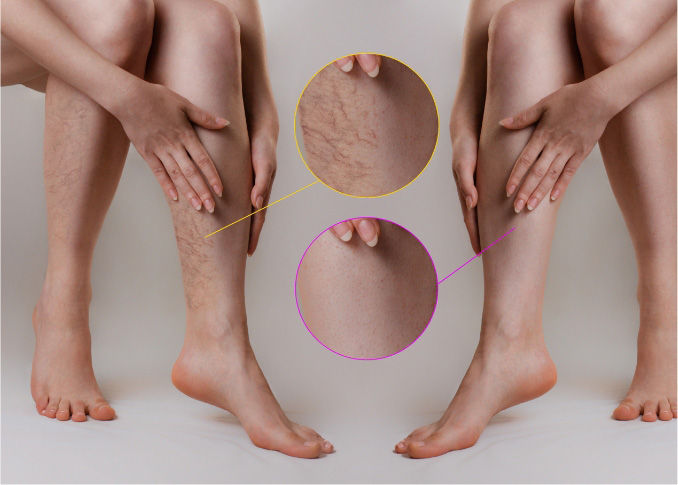What Are the Benefits of Seeing Vein Treatment Doctors? What Kind of Doctor Is a Vein Specialist?
When you suffer from painful, bulging, or unsightly veins, getting the right help makes all the difference. Vein treatment doctors specialize in diagnosing and treating vein-related conditions, offering both relief and cosmetic improvement. But many people still wonder: What kind of doctor is a vein specialist? Understanding who these specialists are and how they can help is key to making an informed healthcare decision.
Who Are Vein Treatment Doctors?
Vein treatment doctors are medical professionals with advanced training in vascular medicine or surgery. These specialists evaluate and treat conditions like varicose veins, spider veins, deep vein thrombosis (DVT), and chronic venous insufficiency. They use both non-invasive and minimally invasive procedures to restore healthy blood flow and improve your quality of life.
While vein problems often appear on the surface of the skin, they usually signal deeper circulation issues. That’s why it’s essential to consult a medical expert rather than rely solely on cosmetic treatments or home remedies.
What Kind of Doctor Is a Vein Specialist?
When patients ask, “What kind of doctor is a vein specialist?” the answer can vary depending on the professional’s training. However, vein specialists usually fall into one of the following categories:
- Vascular Surgeons – These doctors specialize in the surgical and non-surgical treatment of blood vessel disorders. They are highly skilled in treating varicose veins, aneurysms, and arterial blockages.
- Phlebologists – Phlebology is a branch of medicine focused solely on vein disorders. A phlebologist may come from a background in dermatology, internal medicine, or surgery, but they receive additional training in vein care.
- Interventional Radiologists – These specialists use imaging techniques to guide minimally invasive procedures. They can treat vein problems like varicose veins or blood clots with precision tools and imaging technology.
- Dermatologists – While primarily focused on skin, some dermatologists receive additional training to treat spider veins or smaller vein issues using laser therapy or sclerotherapy.
No matter their medical background, all vein treatment doctors undergo specialized training to diagnose and manage venous conditions safely and effectively.
Common Vein Problems Treated by Specialists
Vein treatment doctors handle a wide range of conditions, including:
- Varicose Veins – Enlarged, twisted veins that often appear on the legs and cause discomfort or heaviness.
- Spider Veins – Small, web-like veins that appear on the surface of the skin.
- Deep Vein Thrombosis (DVT) – A dangerous condition involving blood clots deep within the legs.
- Chronic Venous Insufficiency – A condition where the valves in the veins don't work properly, leading to swelling, leg pain, or skin changes.
Each of these conditions can worsen without treatment, which is why seeing a vein specialist promptly is crucial.
Advanced Treatments Vein Doctors Offer
Thanks to medical advancements, most vein procedures today are minimally invasive and performed in outpatient settings. Some of the most common treatments include:
- Sclerotherapy – A solution injected into the vein causes it to collapse and fade.
- Endovenous Laser Therapy (EVLT) – A laser fiber seals off varicose veins from the inside.
- Radiofrequency Ablation (RFA) – Heat energy closes off malfunctioning veins.
- Ambulatory Phlebectomy – Small incisions remove large varicose veins with minimal scarring.
These procedures usually require no hospital stay and allow patients to return to daily activities quickly—often the same day.
When Should You See a Vein Treatment Doctor?
If you experience any of the following symptoms, it's time to consult a vein specialist:
- Leg pain, swelling, or heaviness
- Visible varicose or spider veins
- Discoloration or ulceration around the ankles
- Frequent leg cramps or restlessness
- Family history of vein disorders
Even if your veins are primarily a cosmetic concern, it’s wise to get a professional evaluation to rule out deeper circulation issues.

Benefits of Choosing the Right Vein Specialist
Working with experienced vein treatment doctors offers several key advantages:
- Accurate Diagnosis – Specialists use ultrasound and other imaging tools to assess your condition thoroughly.
- Customized Treatment Plans – They tailor the approach based on your health, symptoms, and vein structure.
- Minimally Invasive Procedures – Most treatments require no general anesthesia and involve minimal recovery time.
- Lasting Results – With proper care and follow-up, you can enjoy long-term relief from pain and vein visibility.
Choosing the right doctor also ensures you're not just treating the symptoms but addressing the root cause of the problem.
Final Thoughts:
Vein issues are more than just a cosmetic nuisance—they can affect your mobility, comfort, and overall health. By understanding what kind of doctor is a vein specialist and seeking care from qualified vein treatment doctors, you take the first step toward healthier legs and a better quality of life. Don’t wait for the pain or swelling to worsen. Schedule a consultation with a vein specialist and walk forward with confidence.
Comments
Post a Comment